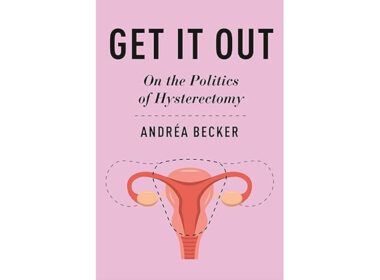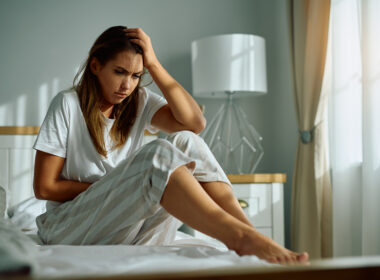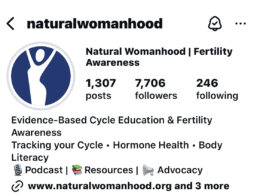Being a teen is hard. There’s pressure to figure out what you want to do with the rest of your life, you’re trying to figure out post-high school plans, navigate social drama and budding romantic relationships, and just figure out, well, yourself. As if the external factors weren’t enough, there’s a host of internal factors for teens to contend with as their bodies and brains undergo rapid development into adulthood… typically while making more than a few zits in the process. In some ways, most* acne is just a normal (albeit frustrating) part of life for teens, but there are treatments and lifestyle changes that can help. And while many doctors are quick to suggest hormonal birth control as the first line of defense against hormonal acne, it might not be the best solution available once the risks and benefits are tallied up.
What causes teen acne, and how birth control can help
Why is birth control often suggested as a treatment for acne? It has to do with their effect on the body’s production of androgens. According to Cleveland Clinic, androgens are a group of sex hormones that include testosterone. Androgens are important for bone density, muscle development, red blood cell production, sex function, and, most notably, are the hormones that are associated with the start of puberty and the development of secondary sexual characteristics, which includes (among other things) increased sebum (an oily substance) production in the skin. So, while androgens are undoubtedly important, high levels of androgens cause sebaceous glands to become too active, which can cause pores to become clogged and can cause bacteria to become trapped and overgrown, which can lead to breakouts [1].
Birth control that contains synthetic estrogen can help lower androgen levels, which can in turn decrease acne. In the female body, androgens are converted to estradiol, a form of estrogen. When birth control floods the body with synthetic estrogen, the body realizes it doesn’t need any more and produces less of its own estrogen building block (i.e., androgens). Less androgens means less sebum production and (usually) less acne.
Can birth control cause acne?
The short answer is yes, some of it can. How can birth control both help and cause acne? While birth control that contains synthetic estrogen often lowers androgens, progestin-only birth control does not. In fact, progestin can have androgen-like effects on the body and increase sebum production. Progestin-only birth control includes IUDs, Opill, Depo Provera, and implants like Nexplanon. Health.com cites four studies that report the rate of worsened acne with Nexplanon to be between 11% and 45%.
Weighing the risks and benefits of using birth control for acne in teens
With any medication, it is important to consider what the side effects might be and whether or not the desired effect of the medication is worth the downsides.
The benefits of using birth control to treat acne are that acne might indeed clear up. Whether or not it works to clear up your acne depends on the birth control you take, and how your body responds to that birth control. (And of course, that acne can come right back after you stop birth control.)
Risks and side effects
The risks and side effects of birth control however, can be extensive. Unbeknownst to many, the synthetic hormones found in birth control affect the entire body–not just one’s reproductive system. These risks merit particular consideration for teens, whose bodies rely on their natural hormones for healthy breast, heart, brain, bone, and immune system development, as well as the completion of puberty and settling into a mature menstrual cycle. In fact, far from “regulating” the cycle (as it is often purported to do), birth control stops women from having cycles (including true periods) altogether.
Oral contraceptive use in teens is also associated with more than double the risk for developing depression when compared to non-users. Furthermore, birth control use during adolescence can mask reproductive and endocrine issues like endometriosis and PCOS (a common symptom of which is cystic acne!), and delay necessary treatment for many years (which may contribute to subfertility or infertility in the future). Birth control also impacts blood sugar, eye health, and how the body responds to stress, and it has been known to cause serious (sometimes fatal) blood clots, even in healthy young women.
How can you treat teen acne without the Pill?
On the bright side, there are plenty of options for treating acne without the Pill–including steps to improve whole-body health, rather than upending it.
Destress
Just don’t be stressed! You’re welcome. Fixed it.
More seriously: remember how we’ve been talking about the importance of hormones? Cortisol is a big one. Cortisol and estrogen impact one another’s levels and an excess in either hormone will further contribute to hormonal imbalance. Getting enough sleep, practicing gratitude, finding positive outlets, and asking for help when you need it are all life-long habits and skills that are essential for teens to develop… and ones that could help with breakouts.
Identify food triggers
Sometimes food triggers are evident enough that teens will notice on their own that eating certain foods prompts acne. For other teens, it may be worth experimenting with common triggers like sugary foods and drinks or dairy and gluten to see if managing or avoiding these foods makes a difference.
Avoid extra oil in skin products
Sebum is oily enough! Keeping hair clean, forgoing make-up or looking for makeup formulated not to clog pores (the bottle or container might say ‘non-comedogenic’), and choosing an oil-free sunscreen can all help. Additionally, use gentle cleansers and a moisturizer at the end of the day to prevent dry skin. This matters because dry skin can further increase oil production as the body tries to compensate.
Look for an over-the-counter solution… patiently
Benzoyl peroxide and salicylic acid are both common and easy-to-get topical acne treatments. However, a new acne treatment can take at least a few weeks to take effect, so don’t expect a cure overnight. Furthermore, a treatment that works wonders for one person might not have much of an effect on someone else. Find a potential treatment, try it out for one to two months, and then look for a treatment with different active ingredients if you don’t see a positive effect.
Ask a dermatologist
If troublesome acne persists, now might be the time to visit a dermatologist. If you’ve already made an effort to manage stress, eat a healthy diet, and adopt a good skin-care regimen, your dermatologist can explore next steps with the knowledge that the standard, at-home solutions have been exhausted and additional treatment is needed.
The bottom line on birth control for teen acne
Acne can be hard to deal with, hard on self-esteem, and just plain frustrating. It can certainly be tempting to look to birth control as a quick-fix for teen acne. But contraception might not live up to that promise, and it can cause new problems. Learning a Fertility Awareness Method (FAM) and finding real solutions rather than simply covering up symptoms is an important step to improving overall health.
*Note that if acne is severe and scarring is a concern, finding a dermatologist and/or a restorative reproductive medicine (RRM) practitioner early (to rule out underlying issues like PCOS) is important to avoid long-term skin damage.
Additional Reading:
Worried about acne returning after getting off the Pill? Read this.
Should you put your teenage daughter on hormonal birth control?
How to get rid of acne without the Pill
Study: Oral contraception use linked to high risk of depression in teen users
Study shows link between teen birth control use and adult depression











